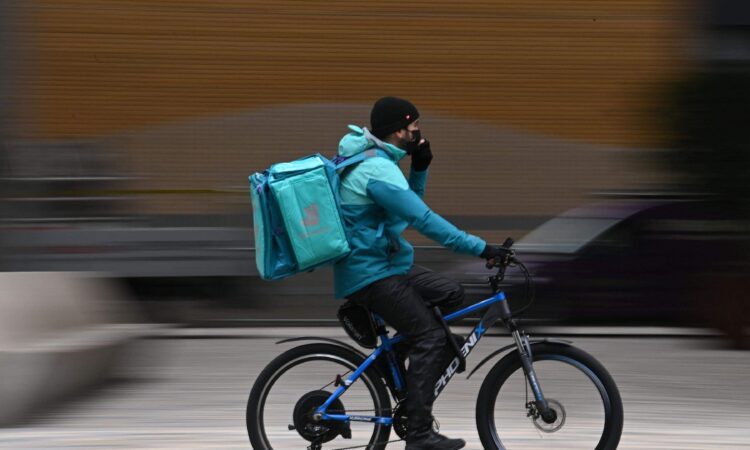
The European Union’s years-long effort to regulate workers’ rights in the gig economy failed to get enough votes by member countries on Friday, derailing legislation opposed by many in the industry.
The bloc was unable to get a sufficient level of support, the Belgian delegation, which holds the rotating EU presidency until June, said in a post on X.
The vote marks a major blow to the EU efforts after it had relaxed some of the planned rules when a previous attempt was rejected in December. The failure comes with little time to spare before European elections in June and could delay new worker protections by years.
The EU has been seeking to define the employment status of millions of people who get work from online platforms, an issue which has seen businesses and unions battle in courts around the world. The gig economy can include food delivery workers, taxi drivers, cleaners and freelancers.
Last year’s effort to pass the regulation included bloc-wide criteria to define when a worker should count as an employee and qualify for benefits like sick pay, while the latest proposal would have allowed individual countries to decide.
Luxembourg will legislate gig work if no EU directive forthcoming
Nicolas Schmit, the commissioner for jobs and social rights at the European Commission, the bloc’s executive arm, said in an interview before the vote that platforms trying to stop the rules were seeking to “preserve the status quo” and are in some cases undercutting worker protections.
MoveEU, an association of ride-hailing platforms that represents companies including Bolt and Uber Technologies Inc. within Europe, had come out against the regulations.
The regulation “would lead to uncertainty for national labor systems and hundreds of thousands of professional drivers while greatly hindering operations for ride-hailing platforms,” MoveEU Chair Aurélien Pozzana said in an emailed statement. A representative for Uber said in a statement after the result that “what remains clear is that any EU-wide rules must maintain the independence platform workers prefer while giving them the protections they deserve.”
Not all gig economy platforms have been critical of the plan, with a spokesperson for Just Eat Takeaway.com NV calling the deal positive, even as the company waits for further details on the text of the proposed regulation.
The policy has been controversial since it was first put forward by the European Commission in 2021. The initial proposal would have cost the sector as much as €4.5 billion ($4.8 billion) annually, according to the bloc’s estimates at the time.
A commission analysis in 2021 found it’s likely that about 5.5 million workers of an estimated 28 million who used digital labor platforms in the EU are wrongly classified as self-employed.
Delivery Hero SE Chief Executive Officer Niklas Oestberg said the latest attempt “doesn’t create any clarity for anyone,” in an interview with Bloomberg this week.
“I’m not really sure what the legislation is made for or why it’s there because it basically says the countries can do whatever they want,” Oestberg said.
Many unions backed the latest deal even after it was weakened. It is “the lowest common denominator that could maybe guarantee a minimum floor of rights,” said Ludovic Voet, confederal secretary of the European Trade Union Confederation.
In the absence of EU action, many countries have already implemented regulation on platform work, including Spain, France and Greece, according to a recent analysis from the European Centre for International Political Economy.






